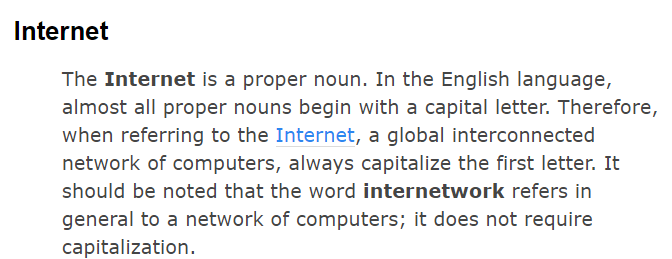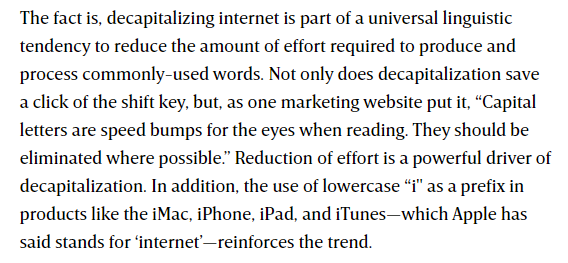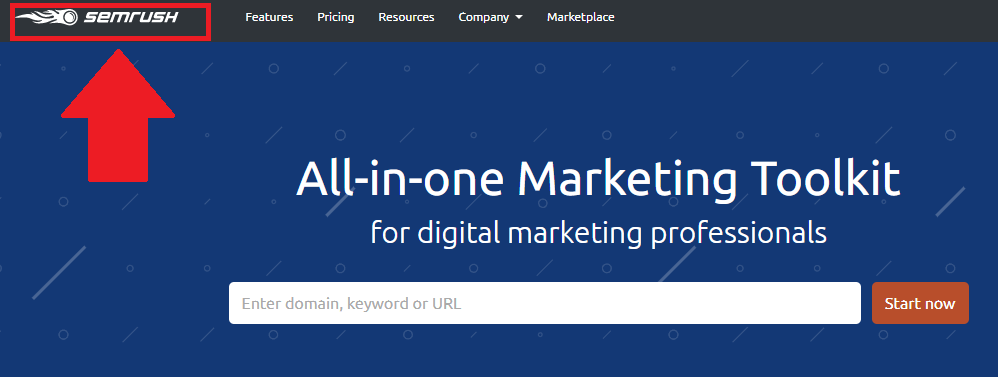You sit down to write an amazing post for your blog.
Everything feels right.
Your creative juices are flowing.
Your mind is forming sentences faster than your fingers can type them.
You feel excitement building.
And then you hit a snag.
It’s small, but it slows you down.
Should you write it “internet” or “Internet?”
Is it email or e-mail?
SERPS, SERP’s, or SERPs?
You go online to search for the answer. Spend 20 minutes reading grammar rules. When you come back to your blog post, you’ve lost your vibe.
How can you prevent this from happening?
The best way is to learn the basic capitalization rules for online writing.
You don’t want to appear sloppy and ignorant of the basic capitalization rules sophisticated bloggers use.
But you also don’t want to seem stuffy and overly traditional.
Keep these four simple capitalization rules beside you each time you sit down to write.
Lesson 1: Don’t Capitalize Terms That Have Entered Common Usage
Brand new words are usually capitalized when they’re introduced into a language.
For instance, take the word scuba.
In 1952, SCUBA was coined as an acronym for Self-Contained Underwater Breathing Apparatus.
Later, as the word became common and generic, it was changed to lowercase and became “scuba.”
Here are two examples of online words that have been changed to lowercase because of common usage.
Is It “Internet” or “internet”?
When the word “internet” first appeared, it was capitalized.
“In its generic sense, internet is a common noun, a synonym for internetwork; therefore, it has a plural form and is not capitalized. In its specific sense, it is a proper noun, and therefore, without a plural form and traditionally capitalized.” – Search Engine Journal, March 18, 2011
According to this Computer Hope, we should capitalize the specific “internet” we’re using to distinguish it from other internetworks.

However, as the word became a huge part of language and everyday life, experts began arguing that it should be lower cased.

After serious debate, style guides began adopting the popular trend.
In 2016, the AP Stylebook announced it would no longer recommend capitalizing “internet”.

On March 23, 2017, The Chicago Manual of Style followed suit.
So, while “internet” is technically a proper noun and should be capitalized, common usage and the evolution of grammar allows us to write it in lowercase letters.
Is It “Web” or “web”?
The word “web” stands for “World Wide Web.”
Like “internet,” it was capitalized when it first appeared in the English language.
However, it was changed to lowercase at the same time as “internet.”
Lesson 2: How to Spell Words with “E” (Short for Electronic)
Is it E-mail, Email, or email?
Is it E-commerce, Ecommerce, or ecommerce?
According to the Merriam Webster dictionary, the correct spelling is “e-mail.”
The same goes for e-commerce, e-store, and e-business.
When two words are joined to form a compound word, a hyphen is required.
However, style guides take another view and suggest removing the hyphen because of popular usage.
A huge cheer for @SubvCopyEd's announcement that @ChicagoManual's new 17th edition will close 'e-mail' at #ACES2017. pic.twitter.com/rwE1R5NHch
— Peter Sokolowski (@PeterSokolowski) March 23, 2017
So, should or shouldn’t you use a hyphen when you spell words with “e” for electronic?
According to Grammarly, both spellings are correct.
What it boils down to is how you want to appear online.
Do you want to be thought of as a scholarly grammarian? Or do you want to be techie, relevant, and mainstream?
Also, if you’ve chosen a style guide to follow, make sure you know how it spells these words.
For instance, if you follow the AP Stylebook, you should drop the hyphen in words with “e.”
Remember, consistency is key when choosing how to spell words with “e.”
If you don’t follow a style guide, choose one spelling and stick to it.
Lesson 3: Capitalizing (& Pluralizing) Common Online Terms
As you blog, you’ll bump up against common internet language and be unsure about their capitalization.
For instance, is it Keyword or keyword?
Is it SERP or S.E.R.P?
How do you pluralize acronyms?
Is It “Blog” or “blog”?
Words like “keyword,” “blog,” “website,” and “data,” are all common nouns.
Use lowercase letters when writing them unless they come at the beginning of a sentence or as part of a proper compound noun.
Is It SEO or S.E.O.?
If you abbreviate the United States of America using periods (U.S.A.), it’ll feel natural to use periods when abbreviating terms like search engine optimization.
Don’t do that, however.
According to APA style, periods or spaces shouldn’t be used in abbreviations unless they’re proper names.

So, it’s always SERP, SEO, and PDF.
Is It SERP’s, SERPS, or SERPs?
Making an acronym plural is tricky. Do you add a capital S to match all the capital letters of the acronym? Or do you use an apostrophe?
Here’s the general rule:
Add a lowercase “s” to form the plural of an acronym.
Examples of correct usage:
- PDFs
- SERPs
Examples of incorrect usage:
- SERP’s shows possession
- SERPS is just confusing.
However, there’s an exception.
To assist readability, you can use an apostrophe in acronyms.
For instance, SOS’s is easier to understand than SOSs.
Lesson 4: How to Capitalize Brand Names
You’re writing a blog post and want to mention a brand.
How do you capitalize it?
To be honest, visiting its website can be confusing.
For instance, look at this.

The logo uses all lowercase letters, so do you say “semrush” when talking about it in your blog?
As you’ll notice, the URL also uses lowercase letters: semrush.com.
The trick is to scroll to the very bottom of the page.
Look for the company’s copyright sign.
Next to it, you’ll see the correct capitalization of the brand’s name.

SEMrush is the right way to do it, not semrush or Semrush.
How to Keep Updated with Online Grammar Rules
Both online and offline, grammar rules are not set in stone.
According to William Strunk Jr. in his book “The Elements of Style”:
“…language is perpetually in flux: it is a living stream, shifting, changing, receiving new strength from a thousand tributaries, losing old forms in the backwaters of time.”
To make sure you don’t commit any grammar gaffes, you can:
- Choose a style guide (AP, Chicago, Microsoft) and follow its updates.
- Read the blogs of industry experts and note how they spell and capitalize words.
- Know (or create) your own style. You can either be traditional or trendy, depending on your audience.
Drawing the line between uneducated and outmoded is not always easy.
However, if you follow these three steps, you’ll never again be confused and slowed down when you’re writing content for the web.
More Resources:
- The #1 Factor That Will Help Your Content Rank in Google
- 10 Best Readability Tools to Check Your SEO Content
- SEO Writing: Top 47 Tips to Master a Combined Art
Image Credits
All screenshots taken by author, March 2020





![AI Overviews: We Reverse-Engineered Them So You Don't Have To [+ What You Need To Do Next]](https://www.searchenginejournal.com/wp-content/uploads/2025/04/sidebar1x-455.png)